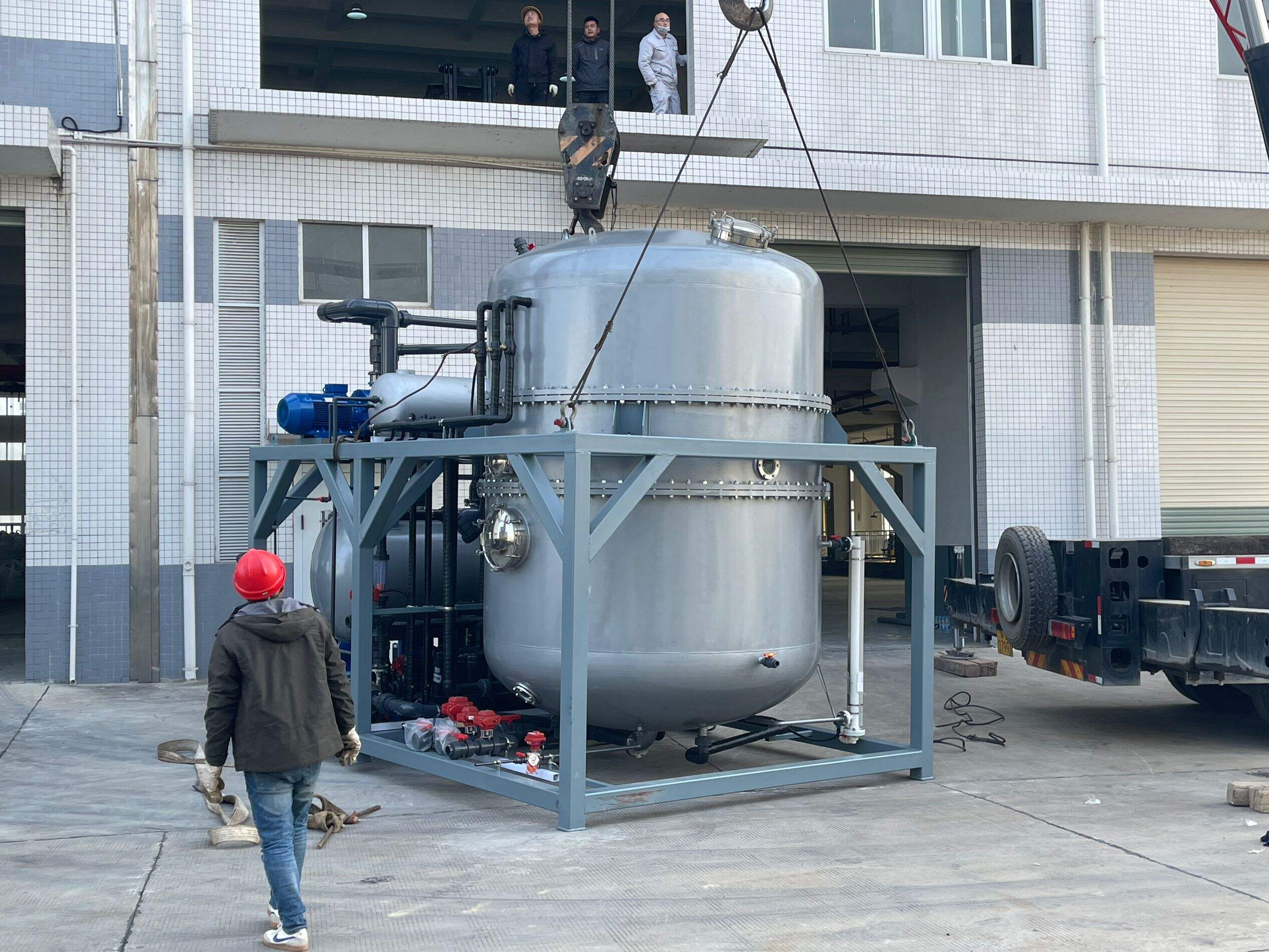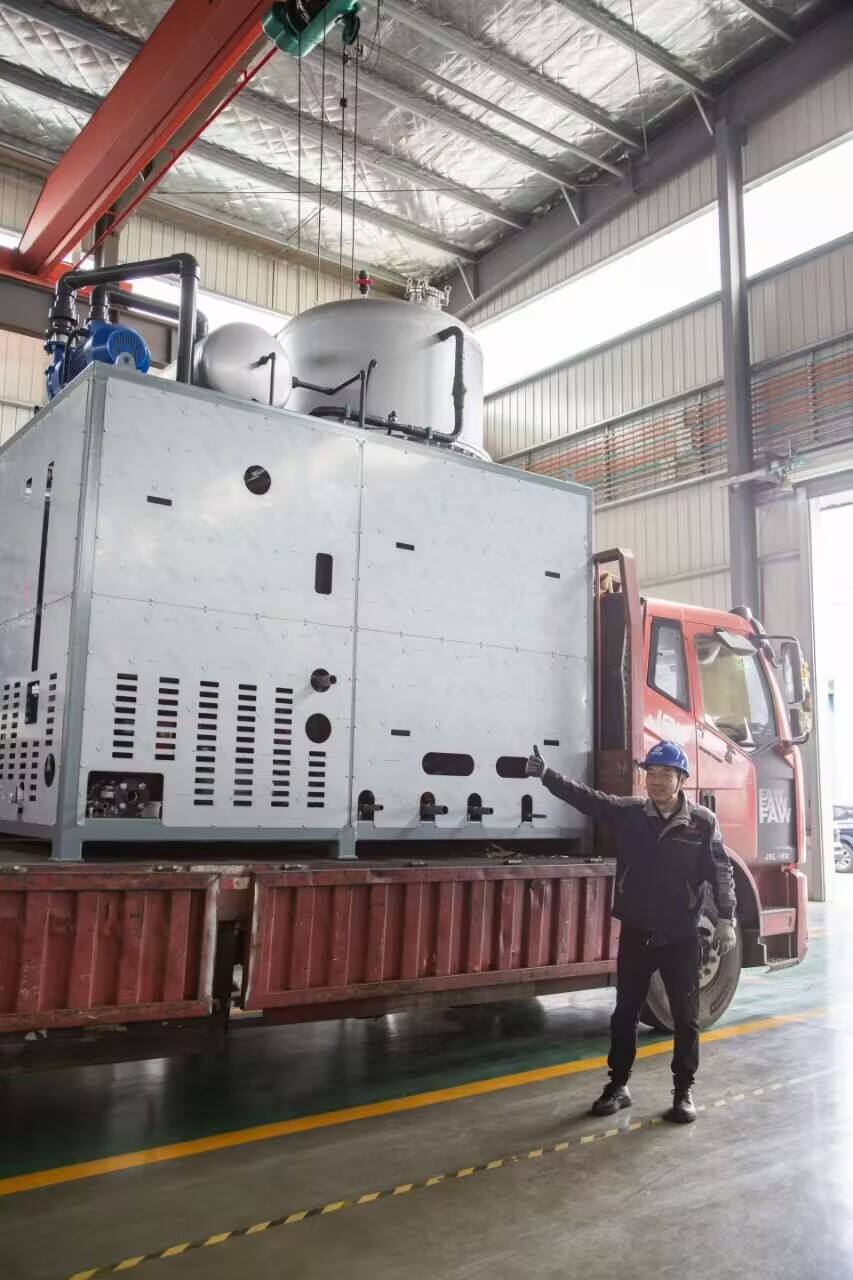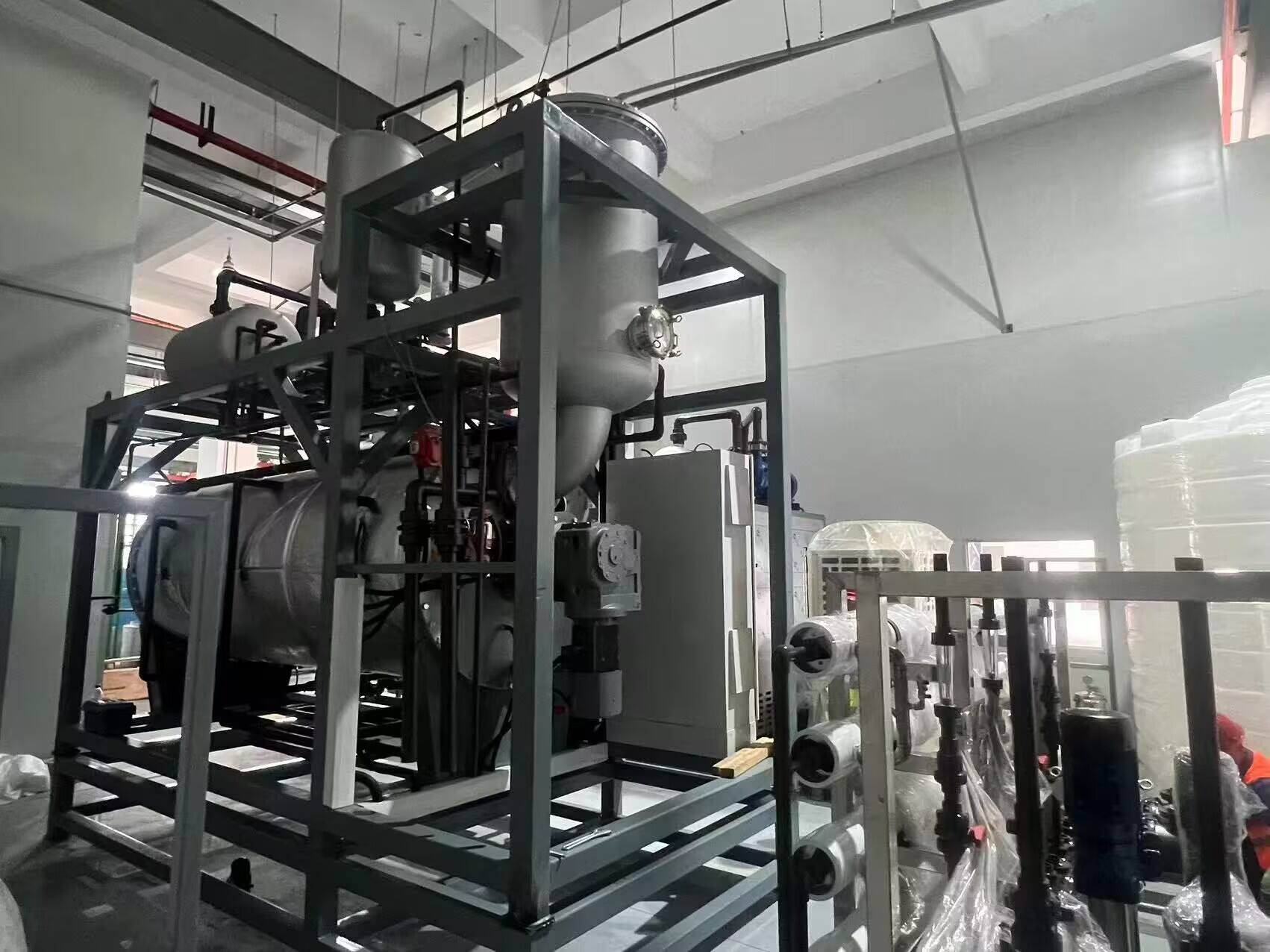low temperature crystallizer
A low temperature crystallizer is an advanced industrial equipment designed to facilitate the crystallization process at reduced temperatures, typically below ambient conditions. This sophisticated system combines precise temperature control mechanisms with specialized cooling technology to achieve optimal crystal formation and growth. The equipment operates by carefully managing the supersaturation of solutions through controlled cooling, enabling the formation of high-quality crystals with desired characteristics. The crystallizer's primary function involves maintaining stable low-temperature conditions while ensuring uniform crystal development throughout the process. It incorporates features such as jacketed vessels, efficient heat exchangers, and automated control systems to maintain consistent temperature profiles. The technology finds extensive applications across various industries, including pharmaceuticals, fine chemicals, food processing, and specialty materials manufacturing. Its versatility allows for processing both aqueous and organic solutions, making it indispensable in producing high-purity compounds. The system's design typically includes provisions for continuous operation, batch processing capabilities, and integration with existing production lines. Modern low temperature crystallizers often feature advanced monitoring systems that provide real-time data on critical parameters such as temperature, supersaturation levels, and crystal growth rates, ensuring precise control over the crystallization process.


